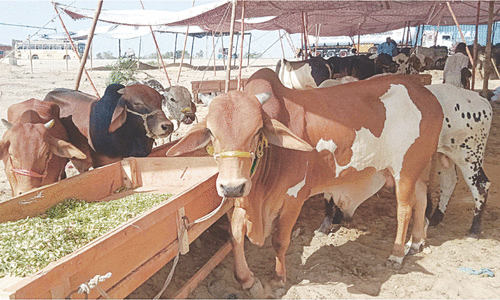THE Balochistan government recently announced its support for the Anti-Narcotics Force in its efforts to eliminate poppy cultivation and the illegal trade of non-medical opiates from the region, along with creating plans for setting up awareness and prevention programmes, and the rehabilitation of addicts in the province. Both Balochistan and KP have long struggled with the narcotics’ scourge, particularly the use of heroin and opium, which has been exacerbated with the various wars and conflicts in bordering Afghanistan, the main supplier of opium, morphine and heroin in much of the world. Pakistan also sits uncomfortably on a major drug trade route that links it with Afghanistan, Iran, Turkey, the Balkans and the EU states. According to an ANF representative, nearly half of all drugs produced in Afghanistan were smuggled through Balochistan to Iran and other countries along the route. Balochistan is strategically important, but it is also strategically vulnerable. This is something those who profit from the illicit trade are well aware of: vulnerabilities are easily exploited, and power vacuums filled anywhere a quick buck is to be made.
The first drug epidemic to hit the country was in the 1970s. By the end of the decade, the government decided to put a complete ban on both state-owned processing plants and illicit retail outlets for poppy production and distribution. By 2000, Pakistan was declared virtually poppy-free thanks to its efforts in implementing a 15-year programme, which also saw the country working alongside India under the UN agenda in the late 1990s. However, by 2001, poppy harvesting had become the main source of income for many local farmers. Perhaps it was due to the lack of vigilance and close monitoring by the government. Or it was due to an inability to offer a sustainable alternative means of livelihood to farmers who harvested the cash crop. Or perhaps it was linked to the invasion of Afghanistan in 2001, which resulted in competition for resources in the power vacuum that was created, as well as distracting law enforcement because of the regional instability that followed. Most likely, it was a combination of all three. While the security situation has improved now, the government still needs to be able to provide an alternative cash crop for farmers that can prove to be profitable. Until the root causes are addressed, the malaise will keep returning, like a bad addiction.
Published in Dawn, February 22nd, 2019










































Dear visitor, the comments section is undergoing an overhaul and will return soon.